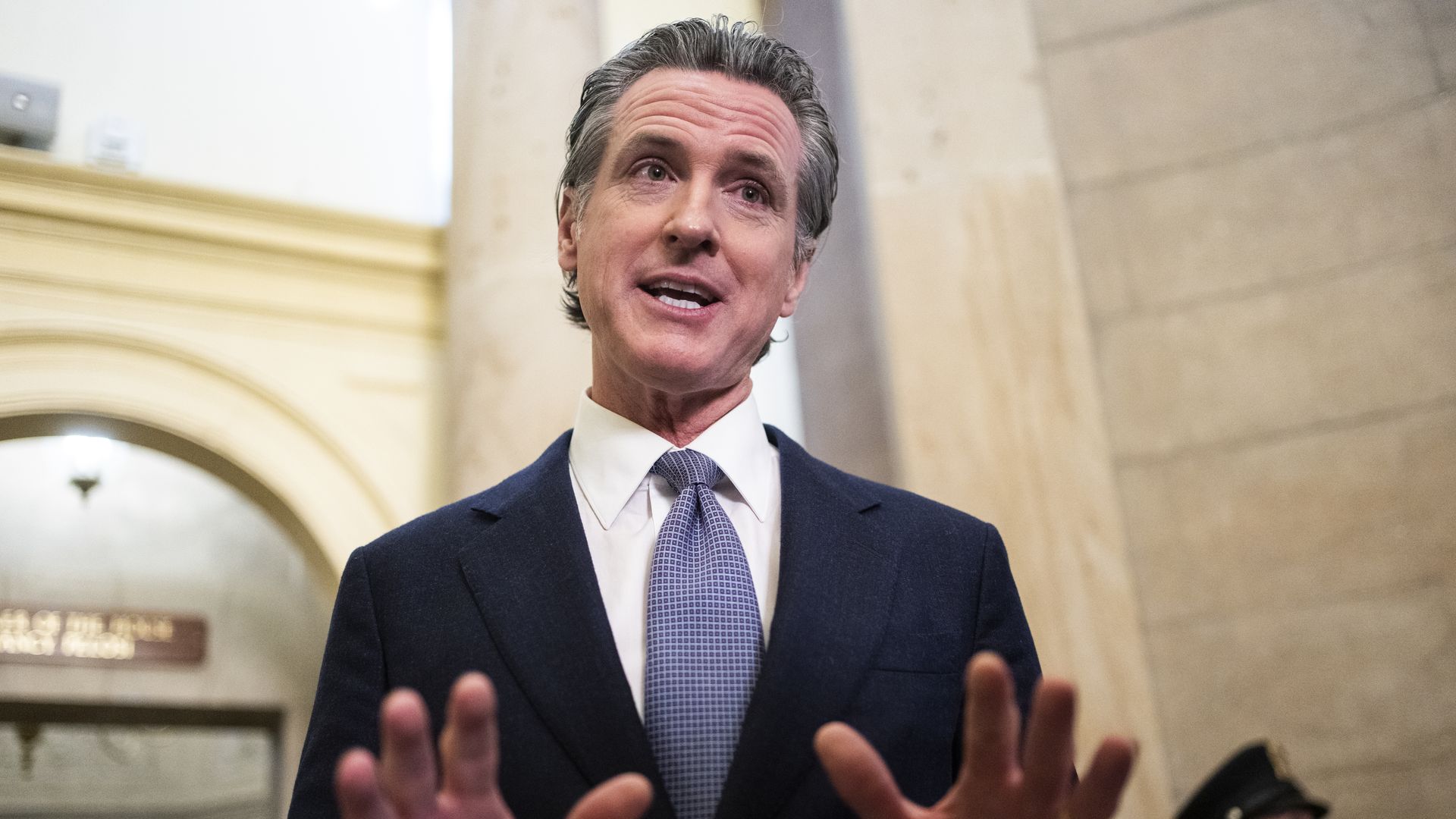Jul 22, 2022 - Politics & Policy
Newsom signs gun control bill modeled after Texas abortion ban
Add Axios as your preferred source to
see more of our stories on Google.

California Gov. Gavin Newsom (D) talks with reporters after a meeting with Speaker of the House Nancy Pelosi on July 15. Photo: Tom Williams/CQ-Roll Call, Inc via Getty Images
